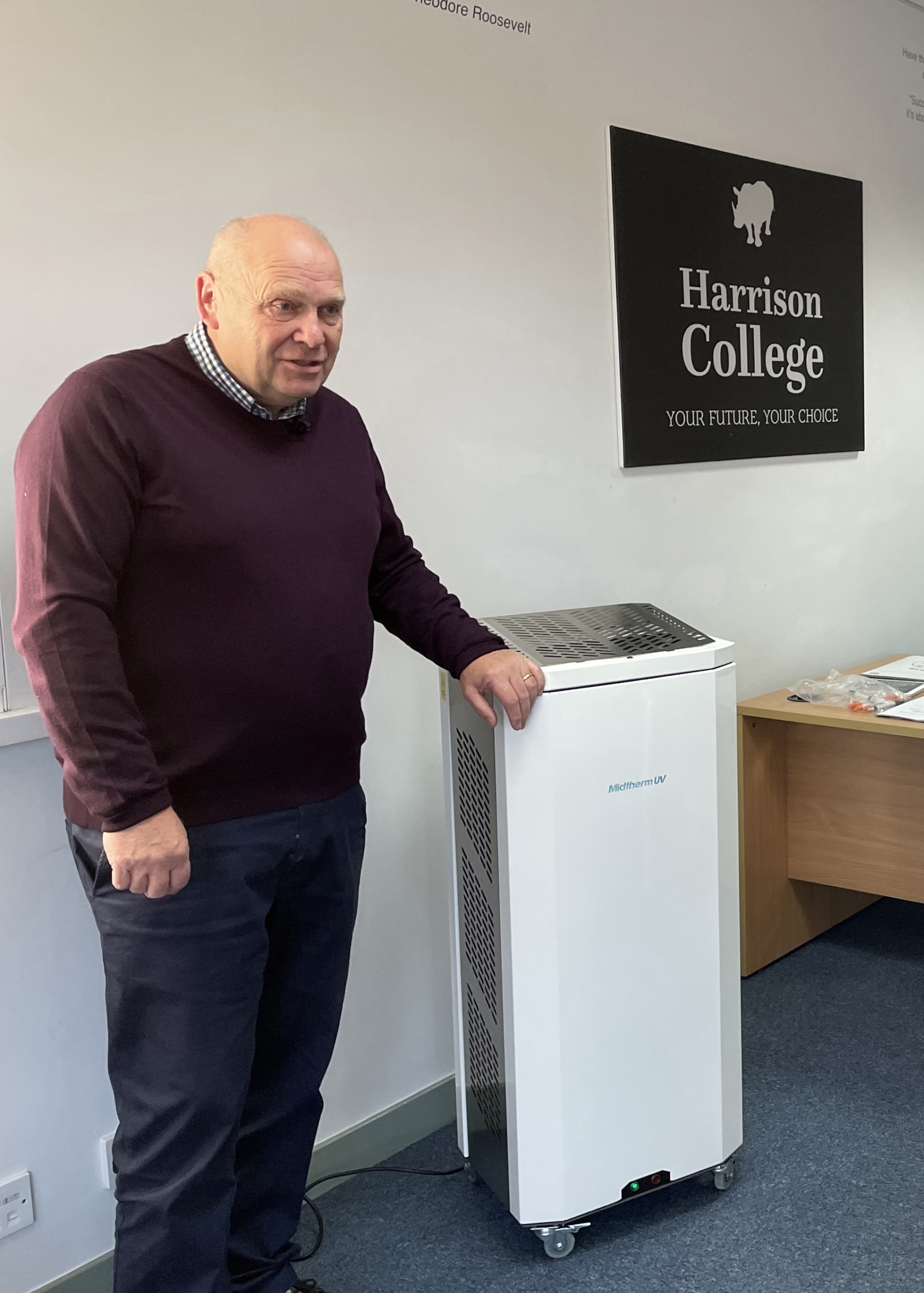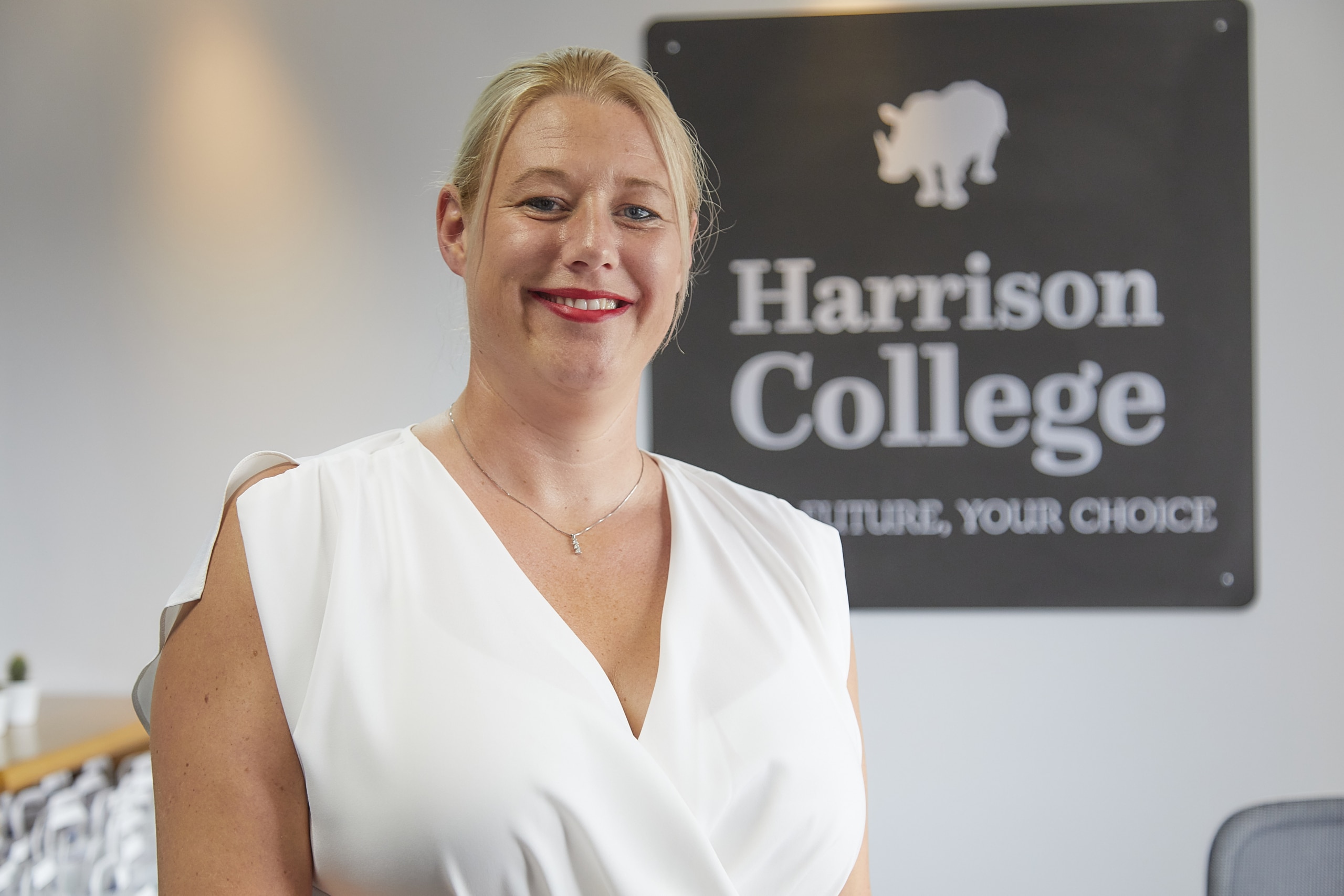A COLLEGE for students with autism is leading the way in the fight against COVID after being chosen to pilot a machine that kills airborne pathogens.
MidthermUV air sanitisers were installed at Harrison College, Doncaster, the only educational site in Yorkshire, where tests proved they had successfully killed bacteria, thereby deactivating airborne viruses’.
Students at the specialist facility took an active interest in the taking of air samples and how the device uses the germicidal properties of UVC light to eradicate harmful organisms.
Harrison College principal and CEO Gemma Peebles said: “It’s an absolute privilege to be chosen for trials which could completely transform the way we live in the future. The results were spectacular and it gives us such a feeling of security knowing that we must be the safest college in the county for air quality.
“Lockdown measures were particularly challenging for our students and, while they did exceptionally well with their online learning, the greatest benefits for them come in the form of face to face teaching, socialising in classrooms and the common areas. Anything we can do to maintain in-school learning has huge benefits for our students.”
Retired engineer Barry Paterson, of Burton Salmon, between Leeds and York, who worked for 20 years in the renewable energy industry, came across the technology while looking for ways to protect his elderly in-laws from COVID.

“I needed something that would look after my in-laws who are in their 90s,” said Barry, who is a member of the Institution of Mechanical Engineers COVID taskforce. “I researched the topic and made a first prototype version myself.”
Barry enjoyed a successful career developing biomass powerplants and knew Richard Andrews, MD of Dudley family owned manufacturer, Midtherm Flue Systems Ltd. He approached Richard about making a UVC sanitiser in the UK during the first week of the first lockdown. Within a week the new company, MidthermUV Ltd was established.
“It took about 18 months from scratch, half of which we have been in talks with the NHS,” said Barry. “Our products have all been designed to comply with the new Institution of Mechanical Engineers standard, which was compiled to regulate UVC air sanitisers for use in the National Health Service.”
The new device takes in room air, passing it over germicidal UVC light which neutralises the threat. The clean air is then blown back into the room, a continuous recycling process that takes a matter of minutes for each “air change” to continually treat the whole room. It not only reduces infections but will also save the country millions of pounds at a time of soaring energy bills by purifying the air, unlike ventilation that often results in letting in cold air. A cleaner indoor air quality environment will also reduce absenteeism.
The machines are also being trialled in dentists, hospitals and schools around the country. As part of the trials, petri dishes containing agar gel, are used inside air sampling devices, to measure the microbes in the air. These collect and then by incubation, grow a variety of bacteria, moulds and fungi that exist in the air. These microbes are used as a proxy method for viruses, as they are on average much harder to “kill” compared to viruses. Tests before and after UVC is used, then give a measure of how effective the UVC is at reducing the airborne risk.
The MT units are simple, reliable and cheap to run. “Just plug-in and play,” said commercial manager John Cooper, also of Burton Salmon. “Lamps last 9,000 hours, which equates to a year if they are on 24/7, other key components have much longer life expectancies, the fans are modular and easily replaced.”
UVC air sanitisers are also more effective than ventilation, which is used to dilute and blow around the pathogens, this is a less focused method and leads to greater heating costs at a time of spiralling energy prices and fears for the environment.
Ventilation also fails to eradicate the infection at source, allowing COVID wards, classrooms, offices, homes and other public venues allowing viruses and other pathogens to linger, causing an increased risk to patients, visitors, residents and staff.
